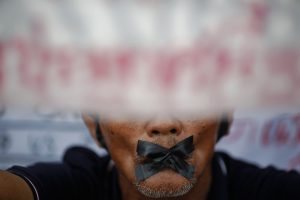Throughout much of the 1990s and early 2000s, Southeast Asia was one of the world’s bright spots for democracy. Even Myanmar, long one of the most repressive nations in the world, seemed to be changing. In 2010 and 2011, the xenophobic leadership of the Myanmar army, which had ruled the country since 1962, began a transition to civilian government by holding elections that ultimately helped create a partially civilian parliament. The country seemed poised for free elections in 2015 that would solidify its democratic change
Since the early 2010s, however, Southeast Asia’s democratization has stalled and, in some of the region’s most economically and strategically important nations, it has even reversed. Over the past decade, Thailand has undergone a rapid and severe democratic regression and Malaysia’s democratic institutions and culture have regressed as well. While less drastic, there have also been troubling developments in a number of other countries.
In Malaysia, the long-ruling Barisan Nasional (BN) coalition has cracked down on dissent and tried to destroy what had been an emerging, and increasingly stable, two-party system. However, this has changed since Malaysia’s BN government won a narrow victory in the 2013 election in large part because of its strong support from the most conservative and anti-opposition ethnic Malays. Following the election, the government has “rewarded” these loyal constituents by proposing a raft of new legislation that aims to suppress the opposition and entrench economic and political preferences for ethnic Malays, disempowering ethnic Indians and Chinese, who together represent about one-third of the country’s population For example, the government essentially reinstated the despised Internal Security Act (ISA), which allows Malaysia’s government to detain people without trial indefinitely, often on vague charges.
Things have been just as bleak in Thailand, which has been mired in political crisis since 2006, when the Thai military launched a coup while then-Prime Minister Thaksin Shinawatra was abroad. Since that time, Thailand has been plagued by repeated cycles of street protests and counterprotests, rising street violence and political instability, short-lived governments brought down through extra-constitutional means, and the return of harsh crackdowns on dissent. Thai institutions have become increasingly polarized and politicized, and few Thais now trust the integrity of the judiciary, the civil service, or other national institutions. Even the king, once so revered that Thais worshipped him like a god, has had his impartiality questioned by many Thais.

































